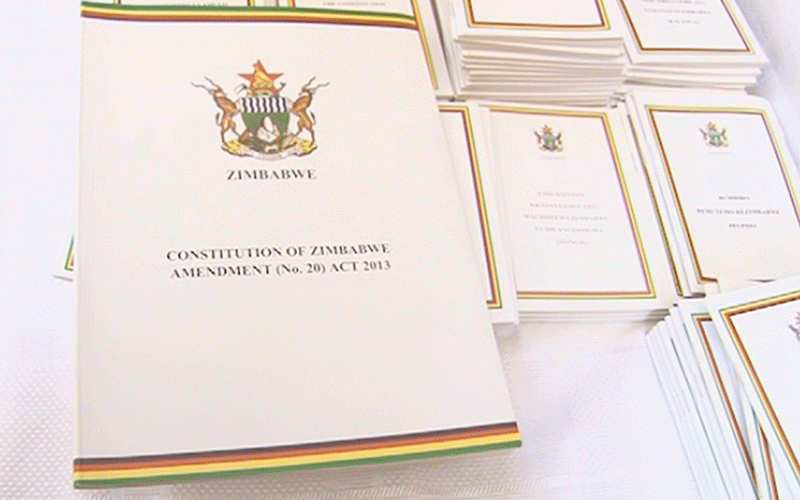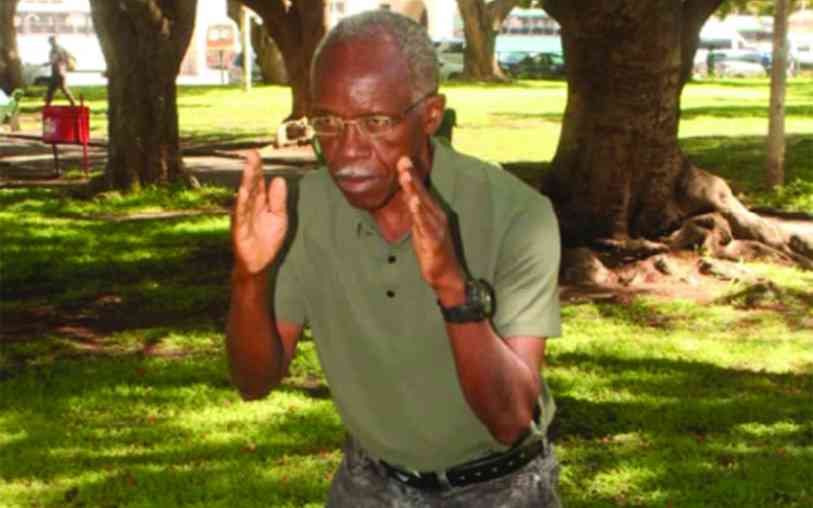
In almost every jurisdiction, a constitution is the supreme law of the land and Zimbabwe is no exception. Among other things, constitution regulates relationships between individuals and their government, establishes the basic institutions of the State, and regulates the executive, legislative and judicial branches of the State.
Zimbabwe’s 2013 Constitution — which was amended in 2019 and 2022 — does not shy away from the fact that non-partisanship is the key ingredient to building truly national institutions.
While fundamental human rights such as political participation and expression are extended to everybody, the Constitution generally restrains public leaders and members of key national institutions from being partisan in the execution of their duties.
The Constitution makes partisanship or the furthering of any political party interests’ anathema in most institutions of the State. Further, serving members of State institutions are barred from furthering an interest or cause of a political party.
This article highlights the key institutions of the State which are required by the Constitution to be non-partisan in order to maintain or advance a truly national outlook.
The public service
The public service which was formerly known as the civil service is primarily responsible for the administration of Zimbabwe and consists of people employed by the State, excluding members of the security services, the staff of Parliament, members of Commissions as well as judges and magistrates.
Section 200(3) of the Constitution directs members of the public service to discharge their duties in a non-partisan manner and not to further the interests or cause of any political party. Further, members of the public service are barred from being office-bearers of any political party.
- ED’s influence will take generations to erase
- ‘Govt spineless on wetland land barons’
- Govt under attack over banks lending ban
- Zim Constitution must be amended
Keep Reading
Independent commissions
Chapter 12 of the Constitution establishes independent commissions for supporting democracy. Such institutions include the Zimbabwe Electoral Commission, Zimbabwe Gender Commission, National Peace and Reconciliation Commission and the Zimbabwe Media Commission.
Section 236 of the Constitution makes it a requirement that the commissions and their serving members shun acting in a partisan manner and avoid furthering the interests or cause of any political party; neither are they expected to prejudice the lawful interests or cause of any political party.
The security services
As provided in section 207 of the Constitution, the security services of Zimbabwe comprise the Defence Forces; the police service; the Intelligence Services as well as the Prison and Correctional Services.
While section 219(3) speaks to the requirement for non-partisanship in the police service, sections 211(2), 224(2) and 227(2) speak to the same requirement for the members of the Defence Forces, the intelligence services and Prison and Correctional Services, respectively.
Non-partisanship is a key requirement; however, it is not the sole requirement as members of the security services are, among other things, required to be patriotic, be professional in their conduct and respect the fundamental human rights set out in the Constitution.
Traditional leaders
The institution of traditional leadership is one of the very ancient leadership structures dating back to the pre-colonial era. Traditional leadership is regulated and monitored within the parameters of the Constitution of Zimbabwe. Section 281(2) of the Constitution directs traditional leaders not to be members of any political party or in any way participate in partisan politics. Traditional leaders are also barred from acting in a partisan manner.
In addition to the public service, independent commissions, security services, police, traditional leaders, the Constitution also has requirements for non-partisanship for employees of local authorities and officers of the National Prosecuting Authority.
It is important that national institutions and public leaders remain non-partisanship in order to serve the nation uncompromisingly. Non-partisanship is a key value in order to maintain or advance a truly national outlook.
To serve the country unwaveringly, it is crucial that national institutions and public officials maintain their impartiality. For a truly national vision to be maintained or advanced, Non-partisanship is a crucial value.
- Brighton Taruberekera is a political and development consultant, writer and researcher. He can be contacted on 0778 992 045/[email protected].










